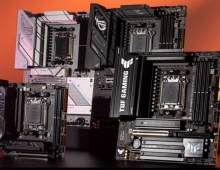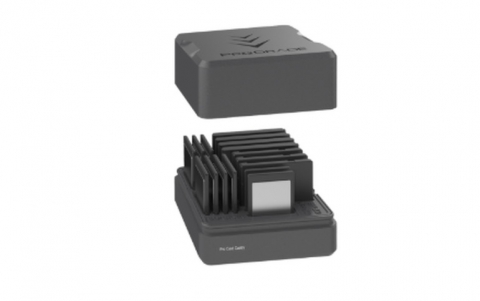
Intel To Make Altera's First 64-bit ARM Chip
Intel will make the first 64-bit quad-core
chips for Altera, which uses technology from rival chip
designer ARM.
Altera announced at the ARM developer's conference on Tuesday that it had reached an agreement with Intel to manufacture Altera quad-core 64-bit ARM Cortex-A53 chips using Intel's latest 14nm technology. Under the terms of this agreement, Intel isn't going to design or sell an ARM chip. Rather, Intel has agreed to use its 14nm foundries to build chips for Altera. This means that Intel's not competing against ARM - which is Intel's rival in the smartphone and tablet markets - it's competing against TSMC, UMC, GlobalFoundries, and Samsung.
Altera's Soc will incorporate a quad-core 64-bit ARM Cortex-A53 processor system, complementing the device's floating-point digital signal processing (DSP) blocks and high-performance FPGA fabric.
The company added that the Cortex-A53, when delivered on the 14nm Tri-Gate process, would achieve more than six times more data throughput compared to today's highest performing SoC FPGAs.
Leveraging Intel's 14 nm Tri-Gate process and an enhanced high-performance architecture, Altera Stratix 10 SoCs will have a programmable-logic performance level of more than 1GHz; two times the core performance of current high-end 28 nm FPGAs.
Altera's chip is targeted at high-end networking and communication equipment, among other specialized applications.
Altera's Soc will incorporate a quad-core 64-bit ARM Cortex-A53 processor system, complementing the device's floating-point digital signal processing (DSP) blocks and high-performance FPGA fabric.
The company added that the Cortex-A53, when delivered on the 14nm Tri-Gate process, would achieve more than six times more data throughput compared to today's highest performing SoC FPGAs.
Leveraging Intel's 14 nm Tri-Gate process and an enhanced high-performance architecture, Altera Stratix 10 SoCs will have a programmable-logic performance level of more than 1GHz; two times the core performance of current high-end 28 nm FPGAs.
Altera's chip is targeted at high-end networking and communication equipment, among other specialized applications.





















